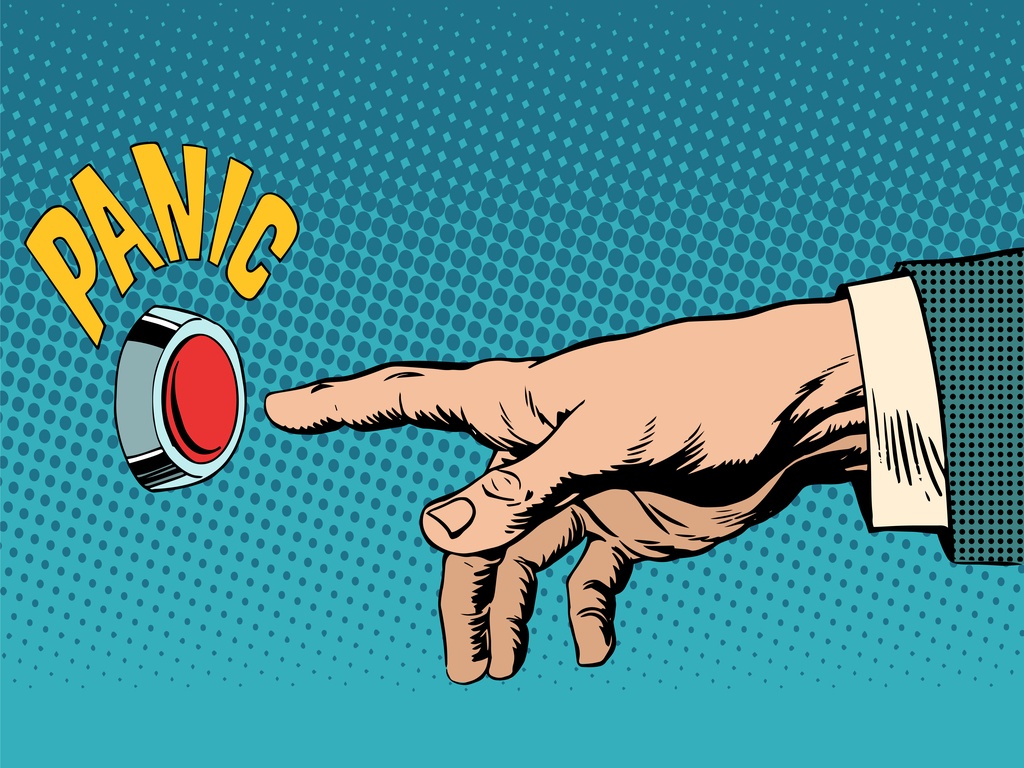Tesla’s Catastrophic Debt Addiction Should Terrify Investors

Tesla stock fell by as much as 4% on Thursday. | Source: STR / AFP
Tesla investors should be nervous right now.
The company faces a looming $1 billion debt deadline on Friday. The repayment will wipe out a third of Tesla’s cash reserves instantly.
But it gets worse. Tesla is reportedly about to take on a further $2 billion in loans to fund its new gigafactory in China.
The situation is gloomier still. Elon Musk bought a mountain of Tesla shares with borrowed money. And he put up other TSLA shares as collateral. The company even admitted in a recent filing that this move could kill the stock price.
Tesla is a House of Cards Built on Debt
Tesla is built on a precarious pile of debt that could come crashing down at any moment. It comes as Elon Musk finds himself in hot water for violating securities law and amid calls for Musk’s resignation as CEO. Let’s dig deeper into this.
Tesla’s $1 Billion Debt Deadline
According to a Securities and Exchange Commission (SEC) filing , Tesla owes bondholders just short of $1 billion on Friday. And Musk will be forced to pay in cash.
Per the official wording, $920 million in convertible senior notes will expire on March 1st at a conversion price of $359.87 per share.
The problem is, the company’s shares are nowhere near the conversion price of $359.87. Even after a 6 percent rally yesterday, Tesla’s stock is currently valued at $314.74.
It means Tesla can’t convert the bonds into common stock as Musk would have hoped. Instead, he’ll have to dig into the company’s cash reserves. It’s a move that former asset manager Darius Brawn said could trigger a “cash crunch ” at the company.
Tesla Planning Another $2 Billion Loan in China
The enormous debt mountain doesn’t seem to faze Elon Musk. According to a report by JL Warren Capital , Tesla is tapping Chinese lenders for another $2 billion in credit. The loan would apparently spur Musk’s goals of producing half a million cars per year.
The borrowed capital will fund Musk’s gigafactory in China, which could give it an edge over all other Western automakers. As Musk said in January’s earnings call:
“We need to bring the Shanghai factory online. I think that’s the biggest variable for getting to 500,000-plus a year. Our car is just very expensive going into China. We’ve got import duties, we’ve got transport costs, we’ve got higher costs of labor here.”
The $2 billion loan would reportedly be taken in stages with a 3.9 percent interest rate. The key backers are Industrial and Commercial Bank of China, China Construction Bank, Shanghai Pudong Development Bank, and Agricultural Bank of China.
Musk will argue that the loan is crucial to Tesla’s success in China. Currently, shipping cars to China incurs a 25 percent tax (which could double under threatened tariffs). Tesla’s Shanghai gigafactory would help Musk skirt these tariffs and hit his 500,000 production target.
Investors Should be More Concerned about Tesla’s Debt Addiction

In a recent SEC filing, Tesla warned investors about its debt problem . The filing explains:
“Elon Musk has pledged shares of our common stock to secure certain bank borrowings. If Mr. Musk were forced to sell these shares pursuant to a margin call that he could not avoid or satisfy, such sales could cause our stock price to decline.”
What does this mean? Elon Musk has borrowed money to make all kinds of investments. Some of the money was even used to buy more Tesla stock.
To back the loans, Musk pledged his existing Tesla stock as collateral. If the stock price declined dramatically, Elon Musk could be forced to sell some of that TSLA stock to satisfy the terms of his loans. That act would crush the price of the company’s shares.
Tesla and Elon Musk have an addiction to debt. At a time when the electric vehicle company has only just started turning a profit (and a conservative profit at that), investors should be very nervous.
Disclaimer: The views expressed in the article are solely those of the author and do not represent those of, nor should they be attributed to, CCN.com.